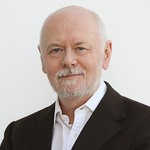Blog
Open Access and UNU-WIDER
21 February 2014
Tony Addison
Development researchers live in a world where research on development, not just in economics but also political science, environmental science, anthropology (to name just a few areas of inquiry) is abundant. It is often very easy to access, with information technology now being at the centre of a researcher’s life, in ways that would have been unimaginable when many of us were starting out. I still like to graze amongst the bound volumes of journals in libraries—the smell of old journals, a kind of mix of old printers’ ink and dust, remains appealing. But actually finding anything sometimes takes too much work. What if that journal is sitting on some other reader’s desk in a far part of the library? And what if you can’t get to the library today?
Yet, while much is freely available on the web, an awful lot more also sits behind paywalls. Or is accessible only if you are a member of a university library that subscribes to the journal you want. Access in the Global South can be especially limited—when library resources are meager and bandwidth slow. To their credit, some sites offer free access to those in the South, but not always. Publishers have to make a living (it’s not a charity), but as researchers we want everything to available now, and for free. It’s a dilemma in which the academic world finds itself, and many of our colleagues in the physical sciences are developing new ways to get their results out into the bigger world.
UNU-WIDER is now negotiating with publishers to offer more of its journal papers on open access. So you our readers can freely read more of our journal articles online. This doesn’t come cheap, but we think the benefits more than outweigh the financial costs. So resources permitting, you will find more of our published material available this way. We will give priority to journal special issues, where we have a number coming out this year. Which brings me neatly to:
Poverty, Development, and Behavioral Economics
This is our new UNU-WIDER special issue of the Review of Income and Wealth, and the entire issue is open access. The theme is ‘Poverty, Development, and Behavioral Economics’, edited by Markus Jäntti, Ravi Kanbur, and Jukka Pirttilä, and is the output of a UNU-WIDER project on new approaches to measuring poverty and vulnerability (and conference) that ran in our 2009-13 work programmes.
The project set out to answer some fascinating questions. One is how poverty causes people to depart from the standard models of rational choice so beloved by economists. This might seem over-academic, but that brings us to the second question: what do such departures tell us about how best to use policy to achieve poverty reduction? Nicholas Kristoff in the New York Times recently launched into an attack on academic researchers, arguing that we are next to useless (see Rachel Gisselquist’s rebuttal in this issue of Angle). This UNU-WIDER project illustrates the value of research: you can’t design good effective policy to reduce poverty without thinking hard about individual and group motivation, and for that you need frameworks, evidence, and not just anecdotes. So the first question while seemingly ‘academic’ very much connects to the second one of policy—you can’t answer the latter without considering the former.
The journal special issue includes research on the topics of saving behavior, trust and co-operation, as well as the measurement of poverty, with links to the relevant papers. Five key constraints on savings in poor countries are identified; transaction costs, lack of trust, information gaps, social barriers, and a range of behavioral biases.[1] The policy takeaway: policy makers and analysts clearly need to consider these barriers when designing programmes intended to promote saving. One illustrative example of how knowledge of barriers to saving can assist in designing mechanisms to overcome them is contained in the paper on the savings habits of members of the Women’s Union in Vietnam.[2] The study showed that membership of a highly connected network leads to higher savings and better use of such savings. Clearly, the information gap barrier to saving could be partly overcome by using social networks to distribute more information on savings products.
The key finding on trust and co-operation is that moral motivations matter, regardless of income level. Poverty has no impact on the feelings of moral obligation generated by contracts, even when those contracts are unenforceable.[3] Similarly, those living in poverty had fairness considerations strongly in mind when asked to distribute resources from a common pool.[4]
To derive better measures of poverty, we need to think harder about how an individual’s wellbeing depends not only on their current income but also on the difference between their current income and an expected level.[5] A measure of poverty that takes this consideration into account is put forward in the UNU-WIDER special issue, and the implications of such a measure are assessed.[6]
You should take advantage of the open access to read the whole issue in the Review of Income and Wealth in more detail. We have special issues of the Journal of Development Economics and World Development (to mention just two forthcoming ones) coming out this year as well. We will give you more news as we move ahead. In the meantime, good reading!
Tony Addison is Chief Economist-Deputy Director, UNU-WIDER.
WIDERAngle newsletter
February 2014
ISSN 1238-9544
 Join the network
Join the network


